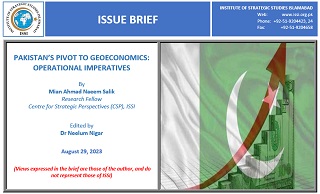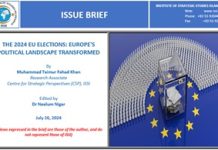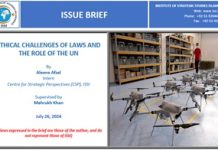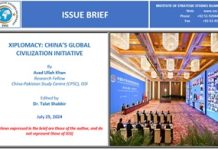Pakistan’s foreign policy has been significantly shaped by the evolving interests of regional and global powers, particularly regarding its neighbouring countries, Afghanistan, and India. South Asia’s security and strategic dynamics have played a pivotal role in influencing Pakistan’s foreign policy decisions and actions. However, more recently, Pakistan has demonstrated a shift to geoeconomics by integrating economic considerations more deeply into its foreign policy. This shift is evident through the country’s first National Security Policy (NSP), which focuses on various aspects, including defence, internal security, foreign policy, regional peace, and human security.[1] The NSP aims to prioritize citizen-centric and economic security, with a focus on uplifting vulnerable sections of society and it emphasizes the importance of comprehensive security, which includes economic and human aspects alongside military security. The policy highlights the need for economic resources to ensure both military security and citizens’ well-being by pursuing a policy focused on geoeconomics.
Pakistan’s Economic Resilience and Global Partnerships
Pakistan’s economy is characterized as mixed, with agriculture, industry, and services sectors contributing to its Gross Domestic Product (GDP). Each sector has unique strengths and challenges and has significant contributions to the overall economic growth and development of the country. Over the years, the economy has consistently grappled with significant challenges, including dwindling foreign reserves, a devaluing currency, and high inflation rates. Economic activity has been hampered by factors such as import controls, high borrowing and fuel costs, low confidence, and protracted policy and political uncertainty. As Pakistan’s economic growth is expected to further slowdown and remain below its potential in the medium-term to long-term, a swift move towards geoeconomics-driven policies is in the country’s best interest.[2]
















